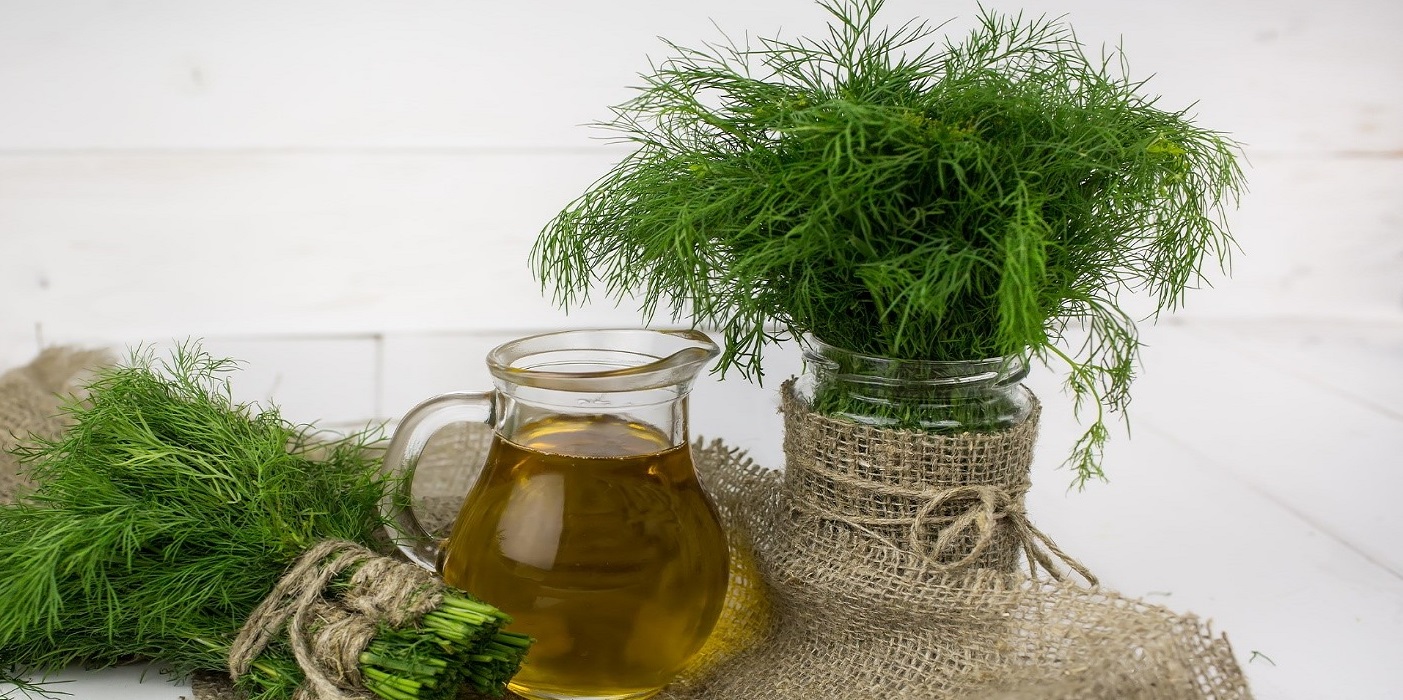Dill Oil

Proven Health Benefits of Dill Oil
- Reduces inflammation and allergies.
- Remedy for digestive issues.
- Remedy for a gaseous stomach.
- Combat's hyperlipidemia, thus reducing the level of cholesterol.
- Boosts the development of milk in lactating mothers.
- Pacifies spasmodic attacks.
- Is used as a disinfectant.
What is Dill oil?
Dill oil as an essential oil is extracted from both the dill plant's seeds and leaves (Anethum graveolens) from the Umbelliferae family. Dill is a native annual herb from the Mediterranean and the black sea region. 'Dill' originates from the word 'dylle,' meaning soothing or luring.1 Traditionally, the seed is harvested by cutting them off with the stalks once they start ripening. The seed heads are then positioned upside down and placed in a dry location for preferably a week. After this, the seeds are then separated from the stalks and stored in airtight containers.
What is Dill oil beneficial for?
Dill oil is spasmodic properties pacify attacks on the nerves, intestines, and muscles by causing a relaxing effect on them, thus quickened relief. When applied on a wound, Dill oil protects the skin from infections acting as a disinfectant, consequently promoting the oils' first healing. Dill oil acts as an energizer for the digestion of food by encouraging peristalsis movement, resulting in digestion and preventing constipation. When added to food items, it protects the food from spoiling when infected by microbes.
Dill oil helps in the elimination of the gases from the intestines. In lactating mothers, Dill oil boosts the quality and the production of milk within the breasts. The Dill seed oil is mainly featured in aromatherapy due to its fresh, sweet, and herbaceous aroma. Dill seed oil is also essential in the beauty and cosmetic industries for making beauty products and perfumes.
Health Benefits:
- Dill oil's antispasmodic effects have a relaxing impact on abnormal contractions in the intestines, nerves, and muscles.
- Protects food items infected by microbes from getting spoiled.
- It acts as a disinfectant when applied to cuts and wounds.
- Anti-fungal by fending off fungal infections such as Candida.
- The antimicrobial qualities cure microbial infections in the urinary tract, kidneys, and the colon.
- Eliminates flatulence by removing the gas-forming and accumulation in the intestines.
- Reduces allergies and eliminates inflammation.
- Stimulates the secretion of digestive juices, acting as a remedy for Indigestion.
- Promotes the quick healing of the wounds, acting as a vulnerary by protecting them from infections.
- Reduces Insomnia by having calming effects on the nerves and brain.
Nutrition
Main components in Dill oil are Limonene (+) and Carvone(-):
- Limonene (30-40%)
- Carvone (30-40%)
- Dill ether (over 10%)
- Phellandrene (10-20%)
Other constituents include: Myristin, Monoterpene, Dihydrocarvone, Trans-Dihydrocarvone.2
Toxicity:
In rare cases, Dill oil causes swellings on the throat and tongue, diarrhoea, vomiting, allergic reactions.3